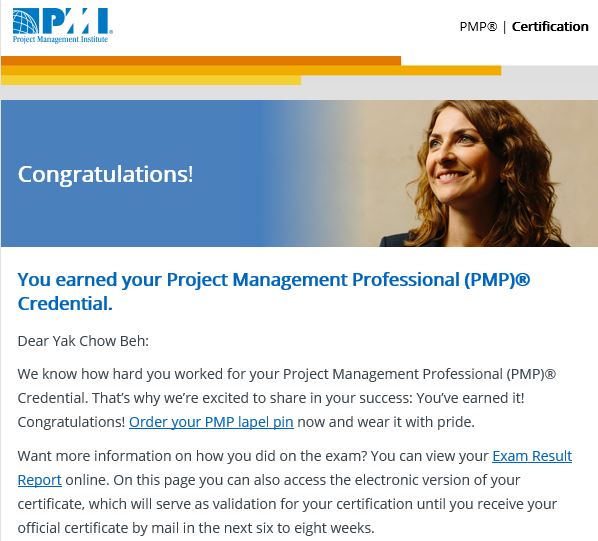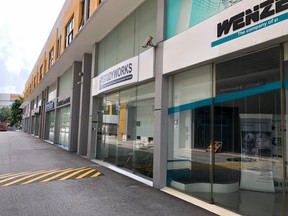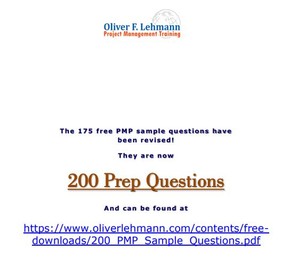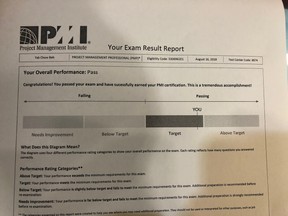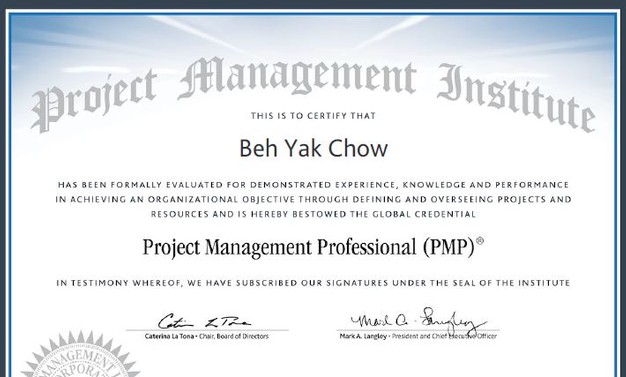If you google PMP you will see that it is not an easy certification exams to pass and also highly sort after. The reason it is difficult is because it required not just project management experience but also clear understanding of the project management process and framework as the exams is focused on the application and situation. It took me exactly four months from completing my PMP® course to passing my PMP® certification exams. I told myself after I passed the exams, I will share my experiences online to help the others going through the same journey. So here is a guide to my journey from studying, applying to passing my PMP® exams. This is Part 2 of my journey - My Study Regime. For Part 1, you can click here
My Study Regime
Once you are eligible to book your exams you should proceed to book a date you are comfortable with. This has to be a date you have ample time to prepare as well as one you can commit to as there is US$70 rebooking fee if you change the dates within 30 days from the exams. There are two centers in Singapore: LHUB which is rather small (accommodate 6 at a time) however it is the most central and Studyworks which is situated at Tradehub21, an industrial building, somewhere near Jurong East. If you prefer LHUB you will need to book early as there are limited capacity. I chose LHUB as one my course mate also chose the same date/venue as we wanted to motivate each other to work towards the exams. After you set the dates you set up your study regime, otherwise you will lose momentum. I gave myself one month to prepare for my exams.
Below are my study regime:
First Two weeks
Read NTUC notes, Andy Crowe and Rita’s book twice. Made my own notes. I also use website like Edward-designer.com as it has good notes, explanation to often confused terms, tips to handle exam questions and links to free resources such as free exam simulators.
Two weeks before Exams
I only started doing the questions the last 2 -3 weeks before the exams, the reason being the questions are difficult to do without broad understanding of project management knowledge. Started first with the exams questions at the end of the chapters of Andy Crowe and Rita’s book first to test my knowledge. For the questions I got wrong I will go through the answers to understand the reasons for the correct answers and read up the relevant in Rita books for thorough explanation. After that I move on to mock computerized questions by RITA Fasttrack as well as free questions banks provided by Oliver Lehmann, PM exam simulator, Simplilearn etc.
Do not be discourage if you do not score well initially but takes this as an opportunity to enforce your understanding. Also it is important to memorize the key maths formulas for EVM as there will at least 3-4 questions on this topic. I also memorize the 49 processes in 10 knowledge area using mnemonic e.g. the 5 process group I use “I Plan Every Meeting Carefully” to represent Initiation, Planning, Executing, Monitor & Control and Closing.
Taking the Exams
In Singapore, you must bring your passport and NRIC along as Prometric required a photo ID that has a signature and our NRIC does not have a signature. You will also need placed your belongings in a locker provided for you and subject to airport style security when you enter the examination room.
Once you enter the room you will be escorted to terminal with your name on it and on the table will be 3 pieces of paper as well as some papers. The exams will start once you click start and completed a mandatory 15 mins of tutorial. You are not allowed to write anything during the tutorial. Once you have completed the tutorial the 4 hours countdown begins and you can start writing on the paper provided. I did a quick brain dump of the formulas I can remember as well as the project management processes.
The exams allows you to strike out unwanted choices, highlight keywords as well as marked questions for further review, therefore you should make full use of these functionalities to answer the questions. The most important thing for the exams is to read the questions carefully as they can be very tricky – Look out for key words such as “Most Likely, Least likely, Best, Not, Except etc. For lengthy questions the trick is to read the last sentence and all the answer choices to have a feel what questions is asking for. For really tricky questions use elimination to arrive at the best answers.
In my exams I encounter a good mix of questions, and was surprised to find quite rather difficult questions on the project initiation process as well as Organizational Process assets (OPA) which I thought was a minor topic as only 13% of the exam questions are in this domain. Although overall I got close to above target, I got only below target for my project initiation questions otherwise I would have gotten an above target grading.
The 4 hours given for the exam is not very long as I only managed to finish all questions with 15 mins to spare to check through the questions I have marked. I didn’t even have time for a toilet break as such please do go to the toilet before the exams.
Once you have completed exams, the system will calculate your score however before you know your results you will be required to do a feedback survey. Only after the survey you will know if you have passed the exams. If you passed, you will be able to collect your exam result report from the center. The certificate will only be send to you several weeks later. However you can start to use the PMP® credential and within the next few days your certification will be updated in PMI’s certification registry. Once you passed you can start collecting your Professional Development Units (PDU) to work towards 60 PDUs required for your re-certification in 3 years time. Seeing how more and more companies are adopting Agile Project Management methodologies such as Scrum and XP, I am planning to take my PMI-ACP certification next. This would allow me to be certified for Agile Project Management as well as earn PDUs towards my PMP re-certification.
